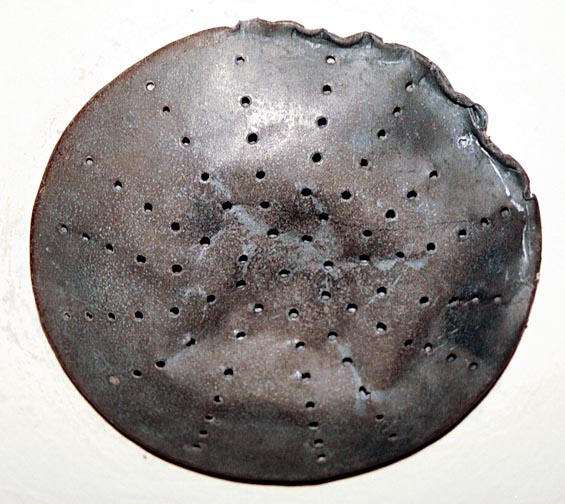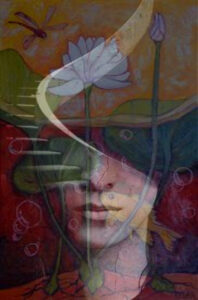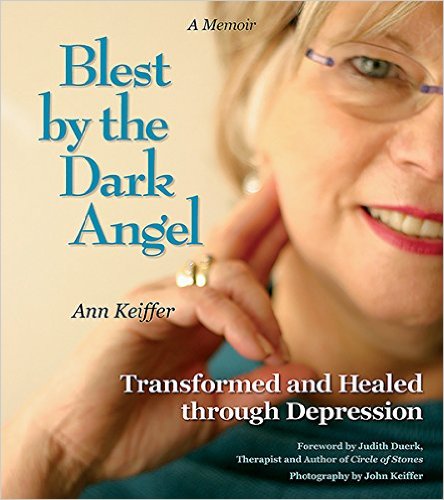For Marlene DeNardo, who heard me
tell it and said, “You should write a
poem about that.”
When I was a young girl I liked to read
the books my father read. One day I
picked up his beat-up paper-back copy
of The Diary of Anne Frank. Unlike many
other books, this was a true story. About
another Ann with-an-e, a young Jewish
girl who with her family was in an attic
hiding from the Nazis. Near the center
of this book I turned the page and came
upon grainy, black-and-white images
unlike anything I had ever seen before.
They were horrifying, and yet I couldn’t
drag my eyes away, at the same time feeling
sad, scared, and guilty that I was looking.
Finally, I paged past the grim gallery
and went back to my reading, only to return
to the photos again and again, even after
I had finished reading the book. Those
images remain burned in my brain today.
German soldiers in heavy coats and
boots, standing in the snow around
a dark open pit filled with piles of
naked bodies, all bones. More naked
bone-people standing along the rim of
the pit, perhaps their last sensation on
this earth, the bone-cracking cold. One
bullet and they would pile themselves
into the mass grave, tumbling in dead
where they fell. Naked clavical-pelvis-
rib-elbow creatures with shaved heads
on rough wooden bunks like shelves,
piles of shoes, clothing, gold fillings,
black-and-white uniforms hanging on
stick-people staring across a barbed-
wire fence, rough train cars made for
hauling livestock, now debarking worn,
exhausted, lost people and their sad,
hopeful suitcases. The gas chambers.
The crematoriums. But to me, of all the
atrocities, a small one was the cruelest.
All these exhausted people so tightly
jammed into cattlecars there was no
room to sit, no way to avoid the human
need to urinate or defecate, no way to
keep back the vomit rising in the throat
from the lurching of the rail cars, no
escape from the stench of fear…how
grateful the people must have been to
get off that train of human wretchedness,
to be lined up and handed a small bar of
soap, to be told to strip off their soiled
clothes, and walk through the doors into
the shower room. How relieved the victims
must have been for this expression of
compassion, this recognition of their
humanity and dignity. Just walk through
those doors. Soon you will be clean. The
Nazis bought docility with a bar of soap.
They bang shut and lock the doors.
But from the rusty shower heads
no cleansing water comes.
Only the poison pellets drop.
What pours in is poison gas.
Ann Keiffer
May, 2013
Image Credit: Google/Shower head from Dachua concentration camp




